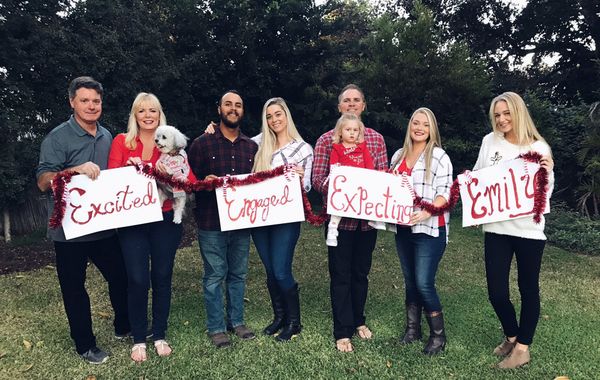“The Golden Girls” was onto something long before the rest of society caught on. The hit TV show laid the nuclear family paradigm to rest — an excellent example of a nontraditional household.
While four girlfriends living together — from a multi-generational home — may not seem outlandish to today’s generations, it was far from the norm just a couple of decades ago. Yet, societal changes ultimately altered our meaning of a structured “family” life.
Shifting away from the nuclear paradigm isn’t a bad thing. Let’s dive into the history and new definitions of “family” and its benefits.
A Brief Overview of the Nuclear Family
The nuclear family dates back centuries when people married to move up the social ladder or obtain property rights. By the 1800s, couples began marrying for love instead.
The nuclear family stayed together — partners rarely divorced and remained married until death. Traditionally, this family dynamic comprised a mother, father and biological children. Many have touted the advantages of these family structures, including:
- A stable home environment for children to grow and develop.
- More benefits and policies in favor of the nuclear family.
- Consistent caregiving.
- More effective parenting with fewer adults in the household.
- Better health outcomes for the family.
- Improved financial management.
In the long term, the nuclear family might maintain greater financial stability and better investment planning for wealth transfer. For example, parents might sign a fixed annuity, accruing a 10% IRS tax penalty if withdrawn before 59.5 years old. However, they can pass those assets to a beneficiary, such as their children.
Thinking Beyond Traditional Families
Although arguments for the traditional family model are valid, a thriving household is not dependent on the nuclear paradigm. Consider what makes a happy household — positive communication, support, quality time and excellent conflict resolution.
Whether you are married or single, straight or gay, you can still sit down with others for dinner and reflect on your day. Nontraditional families equally contribute to a household as any traditional family would. A household classified as single-family, LGBTQ or childless does not equate to instability. In fact, research shows a home with three or more generations living together is better for improved mental and physical health.
Overall, people should concentrate on giving each other the best life possible, from ensuring everyone’s well-being to providing opportunities for growth and development. For those who may have led unhappy home lives, nontraditional households deliver a chance to find security and comfort.
Redefining Family: Not One-Size-Fits-All
Redefining “family” in a non-nuclear way is challenging, as households now come in all forms. Young people may already know many definitions of the modern-age family. After all, the youngest generation grew up on “Modern Family,” the repeal of the Defense of Marriage Act and high divorce rates. Here are seven new meanings of “family.”
1. Single-Parent Homes
Although divorce rates have dropped, there were still almost 690,000 divorces in the U.S. in 2021. Single-parent homes are all the more common, breaking the nuclear family mold.
While single parents could use additional support to raise their families, there are ways for them to save money. For example, Amazon offers a 20% discount for perishable and consumable subscriptions, offsetting the costs of food, diapers and other household items.
2. Same-Sex Families
About 52.7% of the LGBTQ population has endured stigma and discrimination due to gender identity and sexual orientation. Despite this, many same-sex couples are successful, loving parents.
Studies show LGBTQ family arrangements have positive outcomes for children, whether two same-sex parents start their family through surrogacy or adoption. Young people are more apt to view these households as normal than those fixated on traditional nuclear models.
3. Multigenerational Homes
Multiple generations living under one roof is more common than you think. According to Generations United, one in four Americans live in multi-generational households — a trend exacerbated by the global COVID-19 pandemic.
The benefits of having multiple generations in one home include deeper familial bonds, improved finances, better mental and physical health and the ability to care for a family member more easily.
4. Chosen Families
Some families are chosen, meaning they’re made up of close-knit friends you consider relative. Those who’ve had a difficult upbringing or find themselves alone may search for their chosen family.
Chosen families may live together, sharing responsibilities, bills and other home perks. These nontraditional families are especially an excellent source of support for the LGBTQ community.
5. Childless Households
Few family dynamics are as opposite the nuclear paradigm as a childless household. Whether childless by choice or not, about 44% of non-parents will likely not have children now or in the future. Reasons for not having children vary, such as medical and financial reasons, respectively. Another 5% list the climate crisis as their reason.
6. Foster and Adoptive Families
There was a 5% increase in U.S. adoptions from 2010 to 2019, equaling 120,869 in 2019. Adoption and foster care are two fulfilling ways American adults start their nontraditional families.
Although it may not seem like a far stretch from the nuclear home structure, adoptive families are not biologically related. Likewise, it’s typical for singles and same-sex couples to adopt.
7. Blended Families
The Brady Bunch may have normalized the blended family, but it still doesn’t fit the nuclear mold. A blended family brings a couple together with children from previous marriages.
Although this dynamic has its challenges, this nontraditional family is fulfilling, especially as children gain new siblings.
Family Is What You Make It
Whether you come from a nuclear family or a nontraditional home, family is what you make it. You might not get along with blood relatives, but find your place among friends. Likewise, maybe you don't feel fit to parent children of your own. Whatever family means to you is suitable as long as it fills your heart with love.





















